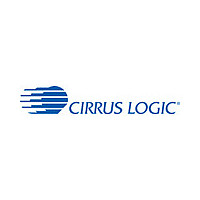CDB4391A Cirrus Logic Inc, CDB4391A Datasheet - Page 3

CDB4391A
Manufacturer Part Number
CDB4391A
Description
Audio Modules & Development Tools Eval Bd CS4391A
Manufacturer
Cirrus Logic Inc
Datasheet
1.CDB4391A.pdf
(22 pages)
Specifications of CDB4391A
Description/function
Audio D/A
Operating Supply Voltage
5 V
Product
Audio Modules
For Use With/related Products
CS4391
Lead Free Status / RoHS Status
Lead free / RoHS Compliant
1. CDB4391 SYSTEM OVERVIEW
The CDB4391 evaluation board is an excellent
means of quickly evaluating the CS4391. The
CS8414 digital audio interface receiver provides an
easy interface to digital audio signal sources in-
cluding the majority of digital audio test equip-
ment. The evaluation board also allows the user to
supply clocks and data through a 10-pin header for
system development.
The CDB4391 schematic has been partitioned into
9 schematics shown in Figures 2 through 10. Each
partitioned schematic is represented in the system
diagram shown in Figure 1. Notice that the system
diagram also includes the interconnections be-
tween the partitioned schematics.
2. CS4391 DIGITAL TO ANALOG
A description of the CS4391 is included in the
CS4391 datasheet.
3. CS8414 DIGITAL AUDIO RECEIVER
The system receives and decodes the standard
S/PDIF data format using a CS8414 Digital Audio
Receiver, Figure 5. The outputs of the CS8414 in-
clude a serial bit clock, serial data, left-right clock
(FSYNC), de-emphasis control and a 256 Fs mas-
ter clock. The operation of the CS8414 and a dis-
cussion of the digital audio interface are included in
the CS8414 datasheet.
During normal operation, the CS8414 operates in
the Channel Status mode where the LED’s display
channel status information for the channel selected
by the CSLR/FCK jumper. This allows the CS8414
to decode the de-emphasis bit from the digital au-
dio interface for control of the CS4391 de-empha-
sis filter, when the CS4391 is in stand-alone mode.
When the Error Information Switch is activated,
the CS8414 operates in the Error and Frequency in-
formation mode. The information displayed by the
LED’s can be decoded by consulting the CS8414
DS335DB2
CONVERTER
datasheet. It is likely that the de-emphasis control
for the CS4391 will be erroneous and produce an
incorrect audio output if the Error Information
Switch is activated and the CS4391 is in the stand-
alone mode with internal serial clock mode select-
ed.
Encoded sample frequency information can be dis-
played provided a proper clock is being applied to
the FCK pin of the CS8414. When an LED is lit,
this indicates a "1" on the corresponding pin locat-
ed on the CS8414. When an LED is off, this indi-
cates a "0" on the corresponding pin. Neither the L
nor R option of CSLR/FCK should be selected if
the FCK pin is being driven by a clock signal.
The evaluation board has been designed such that
the input can be either optical or coax, see Figure 6.
However, both inputs cannot be driven simulta-
neously.
4. CS8414 DATA FORMAT
The CS8414 data format can be set with switches
M0, M1, M2, and M3, as described in the CS8414
datasheet. The format selected must be compatible
with the data format of the CS4391, as shown in the
CS4391 datasheet. Please note that the CS8414
does not support all the possible modes of the
CS4391 and the Left-Justified Format for the
CS8414 and the CS4391 have incompatible serial
clocks, see Table 1. The default settings for M0-M3
on the evaluation board are given in Tables 3-4.
CS4391 CP Mode
Format
0
1
2
3
4
5
Table 1. CS8414 Supported Formats
Mode Format
CS4391 SA
0
1
2
3
-
-
CDB4391
Unsupported
Unsupported
Unsupported
CS8414
Format
2
5
6
3



















